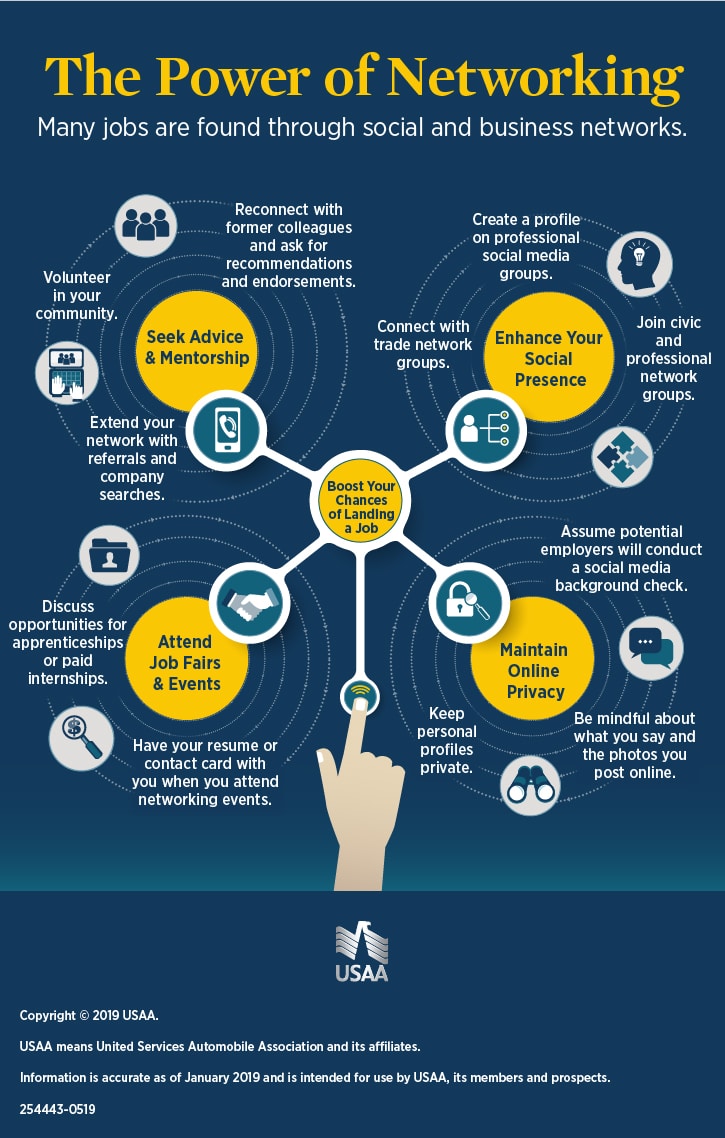It’s incredibly difficult to accomplish any large-scale project by yourself. Becoming successful—whatever that means to you—requires more than your own hard work and determination. You need to build a network.
You can’t be good at everything or keep your focus everywhere, which means you need to know people who can make things happen. If you’re building a house, you need to get a plumber, an electrician, and a roofer. If you’re building a business, you need people who can get you referrals, funding, and great employees.
If you want to know the right people, you have to be willing and able to network.
How to Build Your Network
There’s no perfect formula for making connections, but there are some universal principles that I’ve learned over the years while building my own network.
Find a way to provide value.
Always provide value. Always. It’s the only way to form a network worth having.
Build your business with Crunchbase Pro — try it free today.
Don’t start by calling in favors from people you want to connect with but barely know—people who have no reason to do you a favor. Instead, start by asking what you can do to help them.
Imagine building your professional network in the same way you build personal friendships. When someone sucks up all your time and energy without offering anything in return, it isn’t long before you start avoiding them. And if you’re the person who’s draining everyone else, your network is going to shrink. Fast.
Always think about how you can contribute and provide value. I promise if you take that attitude from the start, you’ll see major returns down the road.
Don’t allow yourself to be a doormat.
There’s a big difference between providing value and letting everyone walk all over you.
If someone is using you for your skills, or continually trying to get things from you without ever reciprocating, then it’s time to focus your attention elsewhere.
I’m not advocating you keep a tab on every relationship you have. Reciprocity doesn’t mean tit for tat. But eventually, you should get the sense that the person on the other end is making an effort. It might be an invitation to dinner or a thoughtful email when they see an article they think you’d like.
Just don’t allow yourself to be used when it’s convenient and then ignored the other 364 days of the year.
Get your ego out of the equation.
As you build your network and start interacting with experienced people within an industry, your ego will likely start to swell. The more important the people you interact with, the more you may feel like you need to be some sort of gatekeeper.
I did this myself when I was younger. My ego was telling me I should be the go-between guy for my contacts. I needed to be the center of attention. But after a while, I realized I was placing more of a burden on myself, and I didn’t have to get deeply involved in something as simple as an introduction.
Ego is never good. So drop it. If you help people, odds are, they’re going to return the favor when they get the chance. It’s the law of attraction—if you continually give people a hand when they need it, they’re going to jump at the chance to reciprocate.
Always protect your network.
Be very careful with what you present to people in your network.
You want to be seen as a high-value person—someone who passes along quality leads, projects, and work. For instance, I occasionally send quality tracks to music supervisors, and because they know the music is coming from me, they actually give the songs a listen.
But I’ve made mistakes in the past. Sometimes, a friend has pleaded with me to pass along some music for them, and I’ve done it. But after doing that a few times, I realized I couldn’t keep going out on a limb when my contact would sound confused when I heard back. He’d say, “This is isn’t the quality I was expecting from you. Why’d you send me this?”
If you want to present yourself as a high-value individual within your network, you can’t be a people pleaser.
Be a peer, not a fanboy.
Here’s the key to being a high-value participant in your own network: act like one.
At some point, you’re going to find yourself hanging out with people you truly admire. Depending on the industry, they may actually be famous to a wider audience. There’s no reason you can’t build lasting relationships within these circles, but that’s only going to happen if you’re invited back.
If you want to get that second invite, you can’t act like a fan. Asking for pictures, getting a little too lavish with your praise, being outwardly starstruck makes you another admirer. Instead, act like you’ve been there before, and don’t force the relationship. If you get along, you’ll see them again.
Building a strong network isn’t just about passing out business cards. It takes years to build relationships and rapport with people. But if you go about it with a good attitude and a willingness to help other people, you’re bound to end up with some great professional and personal relationships.
Sami Rusani is a serial entrepreneur with several multi-million dollar businesses. Under the capacity of his media group, he has served as a marketing, branding, and growth consultant for various startup companies and global brands, such as VISA, Heineken, Mercedes, Sony, Virgin, and many more. He is currently serving as Chief Revenue Officer for ShipChain and is heavily involved in the blockchain and cryptocurrency space in both advisor and fundraising roles.






